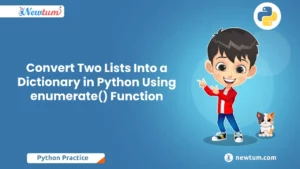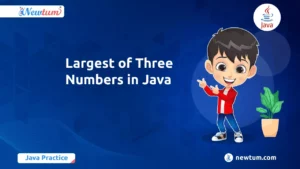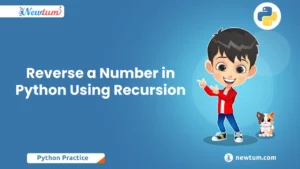Java is a popular object-oriented, high-level programming language for creating desktop, web, and mobile applications. It is essential to prepare for a Java interview to increase your likelihood of being hired for the position. Java programming knowledge and abilities, problem-solving abilities, and analytical thinking are evaluated in Java interviews, helping the interviewer determine if the candidate is a good fit for the organization and job role. In this blog, consequently we will understand the framework of Python interview questions and answers that can assist you in preparing for your interview.
Preparing for a Python interview is critical for individuals who want to increase their odds of success in employment interviews for positions in software development, data science, machine learning, and artificial intelligence. Having insight into Python interview questions and answers will enhance the quality of your preparation.
I. Java Basic Interview Questions for Freshers
Freshers are people who are brand new to the field and have little to no work history. This section’s goal is to offer fundamental Python interview questions and answers that are appropriate for newcomers who want to begin a job in software development, data science, machine learning, or artificial intelligence.
Basic Java interview questions and answers for Freshers
20 basic Java interview questions and answers for freshers are as follows:
- What is Java?
Answer: Java is a popular programming language developed by Sun Microsystems (now owned by Oracle Corporation) in the mid-1990s. Developers widely use it for developing software applications, mobile applications, and web applications.
- What is the difference between JDK, JRE, and JVM?
Answer: JDK stands for Java Development Kit, which includes the tools necessary for developing Java applications, such as the Java compiler, Javadoc, and Java Debugger. Java Runtime Environment (JRE) requires running Java applications. JVM stands for Java Virtual Machine, which is responsible for executing the Java byte code.
- What are the features of Java?
Answer: The features of Java include platform independence, object-oriented programming, simple and easy-to-learn syntax, automatic memory management, multi-threading, exception handling, and security.
- What is an object in Java?
Answer: An object in Java is an instance of a class. It has a state (attributes or variables) and behavior (methods or functions).
- What is the difference between an abstract class and an interface?
Answer: An abstract class is a class that cannot be instantiated and can have both abstract and non-abstract methods, whereas an interface is a collection of abstract methods that cannot be implemented. A class can implement multiple interfaces, but it can only inherit from one abstract class.
- What is the difference between a final, finally, and finalize in Java?
Answer: Final is a keyword that can be used to declare a variable, method, or class that cannot be changed. Finally is a block that is executed regardless of whether an exception is thrown or not. Finalize is a method that is called by the garbage collector to clean up an object’s resources before it is garbage collected.
- What is the difference between static and non-static methods in Java?
Answer: A static method is a method that belongs to a class rather than an instance of the class, whereas a non-static method is a method that belongs to an instance of the class. You can call static methods using the class name, whereas you can only call non-static methods using an instance of the class.
- What is a constructor in Java?
Answer: The constructor calls a special method when creating an object. It initializes the object’s attributes and can have parameters.
- What is the difference between an instance variable and a class variable?
Answer: An instance variable is a variable that is declared inside a class but outside any method and is specific to each instance of the class, whereas a class variable is a variable that is declared with the static keyword inside a class and is shared among all instances of the class.
- What is the use of the ‘this’ keyword in Java?
Answer: In Java, programmers use the ‘this’ keyword to refer to the current object instance. It can be used to access the object’s attributes and methods or to pass the current object instance as an argument to another method.
- What is method overloading in Java?
Answer: Method overloading is a feature of Java that allows a class to have multiple methods with the same name but different parameters. Compile time determines the correct method to call based on the number and types of the arguments passed.
- What is method overriding in Java?
Answer: Method overriding is a feature of Java that allows a subclass to provide a different implementation of a method that is already defined in its superclass. The method in the subclass must have the same name, return type, and parameters as the method in the superclass.
- What is the difference between checked and unchecked exceptions in Java?
Answer: Checked exceptions are exceptions that must be declared in a method’s throws clause or handled using a try-catch block. Examples of checked exceptions include IOException and SQLException. Unchecked exceptions, on the other hand, are exceptions that do not need to be declared or handled. Examples of unchecked exceptions include NullPointerException and ArrayIndexOutOfBoundsException.
- What is a package in Java?
Answer: A package in Java is a mechanism for organizing related classes and interfaces. Simultaneously it provides a way to group related classes and interfaces together and helps to prevent naming conflicts. In Java, you declare a package at the beginning of a source file using the ‘package’ keyword.
- What is the use of the ‘import’ statement in Java?
Answer: The ‘import’ statement in Java is used to make classes and interfaces from another package available in the current class. It allows you to use classes and interfaces from other packages without having to use their fully qualified names.
- What is the difference between private, protected, and public access modifiers in Java?
Answer: Private, protected, and public are access modifiers in Java that determine the visibility of a class, method, or variable. ‘Private’ restricts access to only within the class where the method or variable is defined. ‘Protected’ allows access within the class and any subclasses. Lastly ‘Public’ allows access from anywhere in the program.
- What is a thread in Java?
Answer: A thread in Java is a lightweight unit of execution within a program. It allows multiple tasks to be performed concurrently within a single program. Each thread has its own call stack, but they share the same memory space. Threads are useful for performing tasks that require parallelism or concurrency.
- What is synchronization in Java?
Answer: Synchronization in Java is a mechanism for controlling access to shared resources in a multithreaded environment. It ensures that only one thread at a time can access a shared resource. You can achieve synchronization by using the synchronized keyword or by using explicit locks.
- What is the purpose of the ‘volatile’ keyword in Java?
Answer: Multiple threads may modify a variable’s value by using the ‘volatile’ keyword in Java. It ensures that the variable’s value is always read from and written to the main memory instead of the thread’s cache. This helps to prevent visibility and ordering issues that can occur in a multithreaded environment.
- What is the difference between a stack and a heap in Java?
Answer: A stack in Java is a data structure that stores method calls and local variables. It is a LIFO (Last-In-First-Out) structure, which means that the last method call made is the first one to be removed. On the other hand, dynamic memory allocation uses a heap, which is a region of memory. The Java Virtual Machine (JVM) uses it to store objects and manages it.
Get a Complete list of Online Certification Courses in India here!
II. Java Core Interview Questions for Interview
Core Interview Questions and Answers in Java
The following are some examples of Java Core interview questions and answers are given below:
1. What are the principle concepts of OOPS?
Answer: There are four principle concepts upon which object-oriented design and programming rest. Simultaneously they are:
Abstraction
Polymorphism
Inheritance
Encapsulation.
(i.e. easily remembered as A-PIE).
2. What is Abstraction?
Answer: Abstraction refers to the act of representing essential features without including the background details or explanations.
3. What is Encapsulation?
Answer: Encapsulation is a technique that hides the properties and behaviors of an object, while allowing outside access only as appropriate. It prevents other objects from directly altering or accessing the properties or methods of the encapsulated object.
4. What is the difference between Abstraction and Encapsulation?
Answer: Abstraction focuses on the outside view of an object (i.e. the interface) Encapsulation (information hiding) prevents clients from seeing its inside view, where the behavior of the abstraction is implemented.
Abstraction solves the problem on the design side while Encapsulation is the Implementation.
Encapsulation is the deliverable of Abstraction. Encapsulation barely talks about grouping up your abstraction to suit the developer’s needs.
Top 10 Programming Languages that you need to watch out to boost your career in 2022
5. What is method overriding?
Answer: Method overriding occurs when a subclass declares a method that has the same type of arguments as a method declared by one of its superclasses. The key benefit of overriding is the ability to define behavior that’s specific to a particular subclass type.
Note: The overriding method cannot have a more restrictive access modifier than the method being overridden (Ex: You can’t override a method marked public and make it protected). You cannot override a method marked final. You cannot override a method marked Static.
6. What is method overloading?
Answer: Method Overloading means having two or more methods with the same name in the same class with different arguments. The benefit of method overloading is that it allows you to implement methods that support the same semantic operation but differ by argument number or type.
Important Note:
Overloaded methods MUST change the argument list.
Overloaded methods CAN change the return type.
In addition overloaded methods CAN change the access modifier.
Overloaded methods CAN declare new or broader checked exceptions.
you can overload a method in the same class or in a subclass.
7. How does Java implement polymorphism?
Answer: Polymorphism in Java uses Inheritance, Overloading, and Overriding. Polymorphism manifests itself in Java in the form of multiple methods having the same name.
In some cases, multiple methods have the same name, but different formal argument lists (overloaded methods). In other cases, multiple methods have the same name, same return type, and the same formal argument list (overridden methods).
8. Explain the different forms of Polymorphism.
Answer: There are two types of polymorphism, one is Compile time polymorphism and the other is run time polymorphism. Compile-time polymorphism is method overloading. Furthermore runtime time polymorphism is done using inheritance and interface.
Note: From a practical programming viewpoint, polymorphism manifests itself in three distinct forms in Java:
- Method overloading
- Method overriding through inheritance
- Method overriding through the Java interface.
9. What is runtime polymorphism or dynamic method dispatch?
Answer: In Java, runtime polymorphism or dynamic method dispatch is a process in which a call to an overridden method is resolved at runtime rather than at compile time. The reference variable of a superclass calls an overridden method in this process. The determination of the method to be called is based on the object being referred to by the reference variable.
10. What is Dynamic Binding?
Answer: The code to be executed in response to the call is linked by binding. Dynamic binding (also known as late binding) means that the code associated with a given procedure call is not known until the time of the call at run-time. Dynamic binding is closely related to polymorphism and inheritance.
Learn How to Palprime Number in Java, Here!
III. Java Intermediate Interview Questions and Answers
Java interview questions and answers of Intermediate
We have covered 20 examples of Java Intermediate interview questions and answers below:
Sure, here are 25 Java intermediate interview questions along with their answers:
- What is the difference between a HashMap and a HashTable in Java?
Answer: The main difference between a HashMap and a HashTable is that HashMap is not synchronized, while HashTable is synchronized. HashTable is thread-safe and usable in a multi-threaded environment, but its synchronization can also cause performance issues. HashMap, on the other hand, is not thread-safe but provides better performance.
- What is the purpose of the transient keyword in Java?
Answer: The transient keyword indicates that an object should not serialize a field when written to a stream. This is useful when dealing with sensitive information or large objects that do not need to be persisted.
- What is the difference between an interface and an abstract class in Java?
Answer: An interface defines a set of methods that a class must implement, while an abstract class can provide an implementation for some of its methods. Additionally, a class can implement multiple interfaces, but can only inherit from one abstract class.
- What is a lambda expression in Java 8?
Answer: A lambda expression is a way to express a block of code as an object. It allows for functional programming constructs, such as passing functions as arguments and returning functions as results.
- What is the difference between a static and non-static method in Java?
Answer: The class itself associates a static method, while an instance of the class associates a non-static method. This means that static methods can be called without creating an instance of the class, while non-static methods can only be called on an instance of the class.
- What is the purpose of the finalize() method in Java?
Answer: The garbage collector calls the finalize() method when it is about to destroy an object. The object performs any necessary cleanup before deleting it from memory.
- What is the difference between an ArrayList and a LinkedList in Java?
Answer: An array implements an ArrayList, while a linked list implements a LinkedList. This means that accessing elements in an ArrayList is faster, but inserting or deleting elements is slower. In a LinkedList, inserting or deleting elements is faster, but accessing elements is slower.
- What is the difference between the == operator and the equals() method in Java?
Answer: The == operator compares the memory addresses of two objects, while the equals() method compares the contents of two objects. This means that == can return true for two different objects that have the same contents, while equals() will only return true if the contents of the two objects are the same.
- What is the purpose of the synchronized keyword in Java?
Answer: Only one thread can access a particular block of code or object at a time with the synchronized keyword. This is useful for preventing race conditions and other threading issues.
- What is the difference between an inner class and a nested class in Java?
Answer: A non-static class defines an inner class inside another class, while a static class defines a nested class inside another class. This means that an inner class can access the non-static members of its enclosing class, while a nested class cannot.
Get Complete Python Interview Questions and Answers, here!
VI. How to Prepare for a Java Interview
Java Interview Preparation
Here are some Java interview preparation tips :
- Preparing for a Java interview involves several steps, including:
- Brushing up on the basics: Reviewing fundamental concepts of Java such as syntax, data types, control structures, and object-oriented programming principles.
- Practicing coding: Solving coding problems and exercises to hone your programming skills and develop your problem-solving abilities.
- Learning advanced concepts: Familiarizing yourself with advanced topics like multithreading, design patterns, and data structures.
- Reviewing real-world scenarios: People understand how to use Java in practical applications and scenarios, such as web development, mobile app development, and data processing.
- Preparing for behavioral questions: Preparing for behavioral questions such as your work experience, strengths, and weaknesses, and why you want to work for the company.
- Doing mock interviews: Conducting mock interviews with friends or mentors to practice your communication skills and receive feedback on your performance.
- Researching the company: Conducting research on the company you’re interviewing for, understanding their business and industry, and preparing questions to ask the interviewer.
Overall, preparation is key to performing well in a Java interview. It’s essential to have a deep understanding of the language, keep up with current trends, and practice your problem-solving abilities and communication skills.
Resources for preparing for a Java interview
There are many resources that are easily available to help you prepare for a Java interview, such as online courses, books, and tutorials.
Practice problems and coding challenges can also be found on sites like Newtum, LeetCode, and CodeSignal. Additionally, attending mock interviews or seeking feedback from others can help identify areas for improvement and increase confidence for the real interview.
We hope that you found this blog on the “50 Java Interview Questions and Answers” was informative and useful. Explore the Newtum official website for more interesting Python and coding-related courses and prepare with confidence and increase your chances of success.



